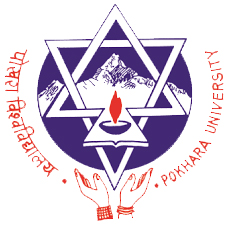Overview
Bachelor of Public Health (BPH) at Novel Academy, Pokhara
The Bachelor of Public Health (BPH) program at Novel Academy, Pokhara, is a four-year undergraduate course affiliated with Purbanchal University. This program prepares students for professional roles in community health by integrating knowledge from medical science, health education, research, and public administration.
With increasing health challenges and resource disparities across Nepal, the demand for trained public health professionals has grown. This course supports the development of practical competencies necessary for healthcare delivery, district health management, policy implementation, and community engagement.
Curriculum Details
The BPH program is organized across eight semesters and includes subjects from biomedical sciences, social science, statistics, and public health practice. Students develop skills in communication, data interpretation, community assessment, and primary healthcare planning. Coursework combines theory, field visits, internships, and project work.
Subjects typically include:
-
Epidemiology and Biostatistics
-
Environmental and Occupational Health
-
Health Education and Promotion
-
Community Health Diagnosis
-
Primary Health Care
-
Public Health Nutrition
-
Health Systems Management
-
Reproductive Health
-
Research Methodology
-
Project Planning and Evaluation
-
Disaster Preparedness
-
Disease Prevention and Control
The program culminates in an internship and individual research project during the final year, allowing students to apply academic knowledge in real community settings.
Objectives
The BPH program is structured to:
-
Provide in-depth academic and practical training in public health
-
Build technical and managerial capacity to run district-level health programs
-
Equip students with analytical tools for applied research
-
Strengthen communication and leadership capabilities for community involvement
-
Support equitable healthcare access through locally driven health solutions
-
Prepare graduates for roles that support national and regional health initiatives
Scope
Graduates of this program are qualified to work in various sectors such as:
-
Government health offices (district, provincial, federal)
-
Non-governmental organizations (NGOs and INGOs)
-
Community-based health centers
-
Schools and public institutions
-
Hospitals and healthcare facilities
-
Health training institutions
Job responsibilities may include conducting health assessments, running awareness campaigns, monitoring sanitation and nutrition programs, evaluating health data, and supporting policy decisions.
Learning Outcomes
Students completing this program will be able to:
-
Assess and analyze health problems in rural and urban communities
-
Design and implement primary health care interventions
-
Conduct and supervise research in public health contexts
-
Manage health education programs and training activities
-
Promote behavioral change through culturally appropriate communication
-
Collaborate with local authorities and health personnel to improve public health outcomes
Skill Development Modules
The course builds applied knowledge and practical competencies, including:
-
Community diagnosis and need assessment
-
Health communication and participatory training
-
Planning and budgeting for health programs
-
Report writing and documentation
-
Monitoring and evaluation techniques
-
Statistical analysis using public health software
-
Conflict resolution and group facilitation
-
Public speaking and awareness campaign organization
Teaching Methodology
The course uses a variety of teaching techniques, including:
-
Classroom lectures and discussions
-
Group presentations and case studies
-
Field placements and community interactions
-
Research assignments and data analysis
-
Peer learning and role-play activities
Assessment is conducted through internal evaluations, written exams, project submissions, and performance during internships. Faculty members guide students through continuous feedback and mentorship.
Eligibility Criteria
Applicants must meet one of the following academic qualifications:
-
Minimum 50% or 2.4 CGPA in Grade 12 Science with Physics, Chemistry, and Biology
-
A-level or equivalent qualification with the same subject combination and required grades
-
Diploma in Health Sciences (General Medicine, Pharmacy, Dental Science, etc.) with 50% aggregate and recognized registration in the relevant council
Admission Process
Admission to the BPH program is based on the MECEE-BL entrance examination.
Exam Details:
-
Format: Multiple choice questions (200 total)
-
Scoring: 1 mark for each correct answer; 0.25 mark deducted for each incorrect answer
-
Minimum qualification: 50 percentile
-
Duration: 3 hours
Document Requirements at Admission:
-
Academic certificates and transcripts (SEE/SLC, Grade 12 or equivalent)
-
Character certificates
-
Copy of citizenship or passport
-
Entrance exam admit card
-
Reservation documents (if applicable)
-
Equivalence certificate for foreign qualifications
Foreign applicants must apply within the specified period and mention the academic program of choice.
Scholarships and Financial Aid
Scholarship provisions for the BPH program are governed by Sections 17 and 20 of the National Medical Education Act and Regulations. These include:
-
Government-funded scholarships based on merit and inclusion criteria
-
Reserved seats as per national quota allocation
-
Support for economically and socially disadvantaged groups
Interested applicants are encouraged to consult the official scholarship guidelines from the Medical Education Commission or Novel Academy’s academic office.
Career Opportunities
Graduates of the BPH program may pursue roles such as:
-
District Public Health Officer
-
Health Program Coordinator
-
School Health Educator
-
Monitoring and Evaluation Officer
-
Community Health Organizer
-
NGO/INGO Field Health Worker
-
Research Assistant
-
Hospital Outreach Coordinator
Public health professionals often collaborate with community leaders, medical personnel, and development agencies to promote inclusive and accessible health services.
Conclusion
The Bachelor of Public Health program at Novel Academy, Pokhara, prepares graduates to become capable contributors in Nepal’s healthcare system. Through academic learning and real-world exposure, students develop leadership, research, and communication skills to improve public health outcomes at the local and national levels.
With strong foundational training and district-focused planning competencies, graduates are ready to address challenges in health systems and contribute to the well-being of communities across Nepal.



.png)
















